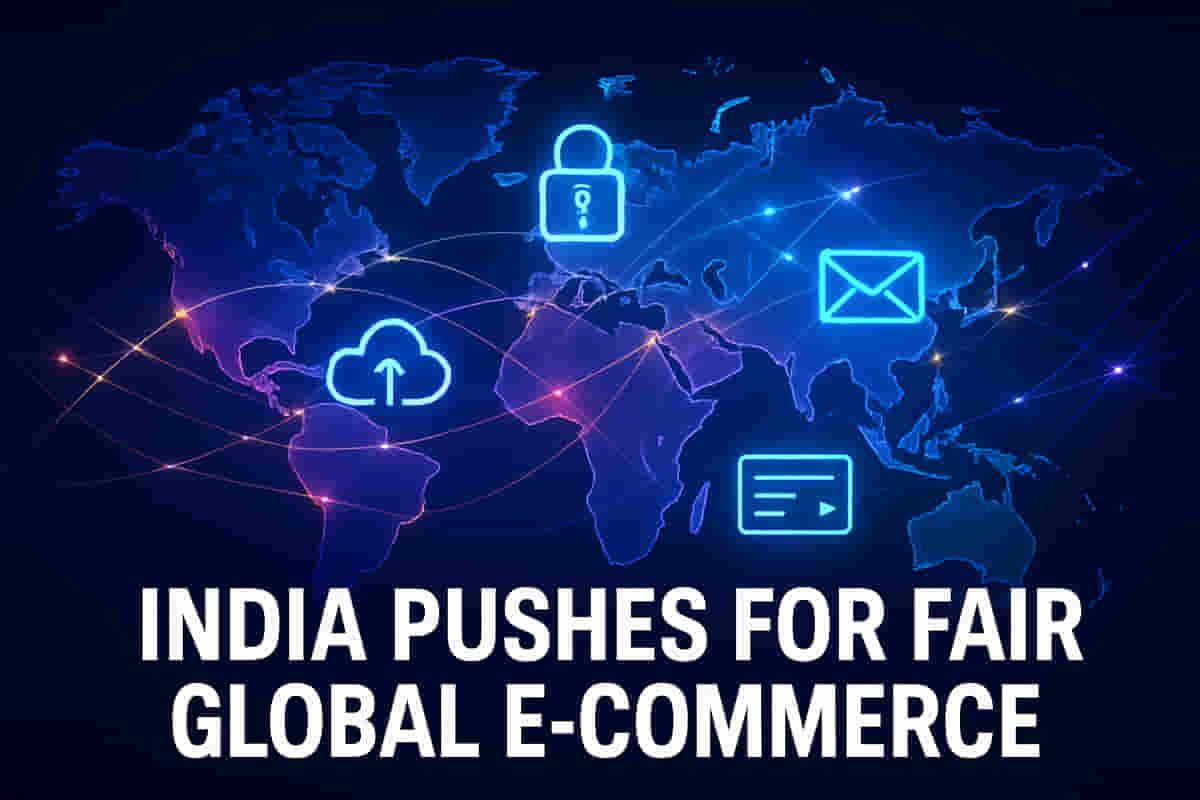India Pitches Digital Public Infrastructure for Global E-commerce at WTO
World Affairs
|
1st November 2025, 4:51 AM

▶
Short Description :
Detailed Coverage :
India has put forward a proposal at the World Trade Organization (WTO) advocating for discussions on fostering secure and interoperable Digital Public Infrastructure (DPI) systems within the context of e-commerce. The primary aims are to counteract monopolistic practices by large technology companies, promote fair competition, and increase the involvement of Micro, Small, and Medium Enterprises (MSMEs) in the global digital marketplace.
Key Proposals: India suggested discussing how WTO members can promote DPI and adopt this approach to prevent market segmentation by big tech firms. It also proposed examining existing digital infrastructure gaps and technological access barriers that impede developing and least developed countries, and how the WTO or the Council for TRIPS (Trade-Related Aspects of Intellectual Property Rights) can address these issues.
India's Examples: India showcased its own successful DPI initiatives, including its unique digital identity system AADHAAR, the Unified Payments Interface (UPI) for digital payments, and the Open Network for Digital Commerce (ONDC) platform, as models for scalable, inclusive, and interoperable e-commerce.
Impact This proposal could lead to international standards for digital infrastructure in e-commerce, potentially creating a more level playing field for smaller businesses and developing economies, while also fostering innovation. It seeks to ensure that global e-commerce growth is inclusive and does not lead to dominance by a few large players.
Rating: 7/10
Difficult Terms: Digital Public Infrastructure (DPI): This refers to foundational digital systems, like digital identity, payment systems, and data exchange platforms, that are publicly provided, interoperable, and designed to enable inclusive access to digital services. Monopolistic Market Segmentation: This occurs when a few large companies dominate a market by controlling specific segments, often preventing smaller players or new entrants from competing effectively. Micro, Small, and Medium Enterprises (MSMEs): These are small and medium-sized businesses, crucial for economic growth and employment, but often facing challenges in accessing global markets due to limited resources or infrastructure. WTO (World Trade Organization): An international body that regulates global trade between nations, setting rules and resolving trade disputes. Council for TRIPS (Trade-Related Aspects of Intellectual Property Rights): A part of the WTO that deals with intellectual property rights, such as copyrights, patents, and trademarks, and their role in international trade. Interoperable: The ability of different systems, applications, or products to connect and communicate with each other in a coordinated way without effort from the end user. AADHAAR: India's unique digital identity system providing a foundational digital identity for residents. Unified Payments Interface (UPI): India's instant real-time payment system, facilitating inter-bank transactions. Open Network for Digital Commerce (ONDC): India's initiative aiming to democratize digital commerce by creating an open network for all e-commerce participants.